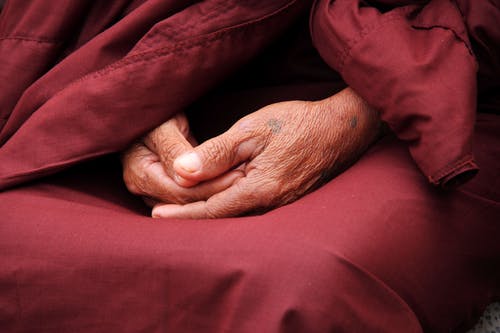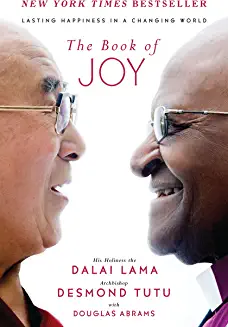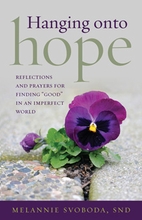At the wedding feast in Cana, Mary notices that the wine has run out. The fact that she notices this, is in itself somewhat amazing. Amid the hustle and bustle of all those guests, the hum of steady conversation, the loud laughter, and the music and dancing, Mary notices this hidden detail: the wine supply is depleted. In her first century Jewish culture, such a situation bordered on the tragic. It meant that this festive celebration, with its traditional days of feasting, would be brought to an abrupt end—and an embarrassing end for the young couple and their families.
What does Mary do? She seeks out Jesus. Again, even this task wasn’t as simple as it sounds. For the guests would have been divided into two distinct groups: the men on one side and the women on the other. Mary would have to navigate to the other side of the crowd to find her son among all the other men. But she does this and soon she spots him—perhaps laughing with a few friends or even dancing. I see him a little surprised when he sees her. He stops immediately and goes toward her. Now what? he wonders. Is something wrong? What could have made her seek him among the men—in the middle of a party? Mary takes Jesus aside and speaks to him softly. He bends down his head to hers to hear her above all the noise.
And Mary says, “They have no wine.”
Her words are a simple statement of fact, a succinct summary of the situation. She doesn’t go into a lengthy explanation as to how this could have happened and who might be to blame. Nor does she need to tell him what an embarrassment this is for the families. He would know that. She doesn’t tell him how powerless she feels or how bad she feels for the two families. Her coming to him is ample evidence of both. And Mary doesn’t even tell Jesus what he should do. Even when he says to her, “My hour has no yet come,” she knew him well enough and trusted him enough to say to the servants, “Do whatever he tells you.”

And we all know what happens next. The water is changed into wine. Or, as the poet Alexander Pope wrote so beautifully, “The conscious water saw its Master and blushed.”
In her book, More Hidden Women of the Gospels, Kathy Coffey writes that, in this story, “Mary also models the stance of prayer. Many words are not necessary; God understands the need.” There are times, I believe, where a simple statement of fact can be a very good prayer: “Mom’s sick… Our school is struggling… So many refugees… He needs a job… It’s hard for me to trust you, Jesus…” Sometimes even one word can be our prayer. These past weeks I’ve sometimes prayed with only one or two words: “Covid… Afghanistan… planet earth… Ida… Haiti… our children… our leaders…” Or I pronounce a single person’s name. Then I just sit with the word for a few moments, sometimes letting my heart ache, or eventually listening for what God may be calling me to do. Perhaps there’s something concrete I can do. Or maybe God might be calling me to greater trust, patience, awareness, love.

Kathy Coffey offers this suggestion: “Perhaps some complex dilemma you face now awaits resolution—maybe needing you to invite God, through prayer, to enter in. Try phrasing the situation in about five words, as Mary did for Jesus.”
At times when we pray, we might pour out our thoughts and feelings in an avalanche of words. And that’s fine too. But at other times, our prayer can be more like Mary’s “They have no wine.” And sometimes our prayer may even be wordless as we sit in God’s presence… in pain… in wonder… in grief… in fear… in joy… in thanksgiving.
For reflection:
Do you ever pray with few words? If so, how do you feel praying this way?
Have you experienced wordless prayer? If so, when and why does this kind of prayer arise in you?
Mary had to seek Jesus amid the crowd and the din. Does anything ever “crowd your life” or make so much “noise” that you find it difficult to find Jesus? If so, what do you do about this?
Our prayer today can be this beautiful video by Venture Worship. The song is called “New Wine.” As we go about our daily activities, perhaps our mantra can be the closing line: “Jesus, bring new wine out of me.”
As usual, I invite you to share your thoughts and comments below. We all like to hear what our readers are thinking and feeling.







32 Responses
As soon as I saw your reflection this morning, I was reminded of a song by T Graham Brown, Water Into Wine.” Be sure to listen to it. It’s a powerful example of prayer.
Susan, I checked out the song by T. Graham Brown called “Wine into Water.” It’s a powerful song for anyone struggling with alcohol—or struggling with any addiction really. Thanks for the recommendation. Sr. Melannie
This reflection and song touched my heart as we struggle to care for my sister in law who has Alzheimer’s. Though she is in assisted living the ongoing responsibility can be soul crushing. I will try to remember and pray a five word prayer whenever I feel overwhelmed and/or angry.
Good morning, Sr. Melannie…
Good morning, all…
I have heard or read this story many times, but two things never dawned on me: one, the men and women would have been separated by custom; two, hearing Mary’s plea as a prayer. I always pictured Mary sitting at the same table with Jesus, sort of like nowadays except no chicken cordon bleu!
Many have also said this is Jesus’ first miracle. If that’s true, then he kept the party going! Now there’s some good news!
On a personal note, perhaps I should have said a simple and direct prayer before the Yankees swept my Red Sox!
Thanks, John, for reminding us that Jesus was something of a “party guy” in the best sense of that phrase… And I’m sorry the Yankees swept your beloved Red Sox. The Cleveland Indians tried to help your Sox out when they routed the Yankees a little while back… But alas! That’s sports for you!… Thanks for commenting… as usual! Sr. Melannie
Thanks for this lovely song and as always for your reflection. Always begins my Monday on a positive note while riding the bus to work. It has been a while since I’ve commented but I’ve never stopped reading. Thank you.
Kathy, Thanks for reading my blog–and for commenting occasionally too! I appreciate both! Sr. Melannie
Good morning to you all,
When my best friend from childhood was suffering from non-Hodgkins Lymphoma, for 20 years and the last few years were becoming particularly difficult, I came to realize that each thought I had of her was a prayer….I couldn’t possibly be saying words all the time, but I could and did think of her often. When I shared that with her, she was delighted and shared that with her many other friends who were feeling so helpless to ease her pain. When her dad was nearing the end of his life and suffering terribly, she shared that with him as well. To me, prayer is loving, however that looks.
Some of the first words of the song are….”Crushing and pressing…” to make new wine. How true that is with us….we often must be crushed and pressed in order to produce new wine, painful though it is.
I’ve always loved this story of the wedding feast. Several years ago I went on a pilgramage to the Holy land with 2 Dominican sisters as our guides. Before we went we met togtherr to get all the particulars and were asked if we would like to put together a reflection for each of the places we would be visiting and I chose Cana. I’m not going into it all, but I imagined Mary as a typical Jewish mother and how that all played out. One of the pilgrims came to me near the end of the trip and said that portrying Mary as I did helped her see Mary in a way that she found easier to embrace.
Thank you S. Melannie for these memories,
Mary N,
Mary, Thank you for sharing your personal experience with us… and your conclusion: “Prayer is loving.” Sr. Melannie
Well Melanie you know me and you know I am not a woman of a few words and to sit with just one word or two it’s just very hard for me but today I’m gonna try to do that I love this story and how you wrote it it is very beautiful and the song is exceptional thank you so much and have a beautiful day.
Maryann, It’s sometimes good with trying new forms of prayer. I give you credit for your willingness to do that! Melannie
Good morning! My husband has dementia, although he is doing very well. When I have to leave him, basically to go to the grocery store, I always ask God to take care of him as I am backing out of the driveway–which seems somewhat arrogant, as if I want God to watch him until I return and then I will take over. From now on I will try to simply pray, “Lord Jesus, remember Steve.”
Susan, We’ll keep your husband and you in prayer during this challenging time… saying simply, “Steve and Susan”… Sr. Melannie
Beautiful reflection on the gospel—new insights for me. I identify with the song, “New Wine.”
Thank you, Carol. I’m glad the song spoke to you… Melannie
Good morning! In May, my mom died from the complications of Alzheimer’s. She was diagnosed in 2002 but our parents never shared that with us. When dad died in 2008, it became apparent that she couldn’t be in her own home anymore and after a few weeks, we learned about her diagnosis. I’ve been taking care of her needs for the past 13 years, seeing her each day at the dementia facility and fielding everything else, including selling her house.
I don’t think I realized what grief can be about until now and it’s hard to figure out. But it rears its head each day in some way. I have had an active prayer life but even that has suffered recently. I’m “pressed” and “crushed” by so many thoughts and feelings. I love the model of prayer that you suggest here….Mary’s brief approach and total trust. One word, five words, not a torrent. In the torrent, I’m trying to find my own answers. In the brief prayer, I’m letting God and trusting. I’ll be giving that my best effort.
Thank you for this Monday treasure!
Nancy, My deep sympathy to you on the death of your mother. I marvel that you cared for her for 13 years. And then all the other things you tended to after her death. One of the best books I’ve read that describes the grieving process is C. S. Lewis’ “A Grief Observed.” It’s an older book and a short one, yet he puts into words his grief after the death of his wife, Joy. I’ve read it several times… Many parishes also have bereavement groups that might be helpful. Just know that you’re in my prayers, Nancy. Sr. Melannie
Tonglen for me is a form of prayer where I willingly open myself to the sufferings of others. So I have a prayer list of family, friends, and neutral folks. I recite this list then say, “May all their suffering come into me: all the trauma and stress, all the bitter experiences, and all the fear and grief- breathe in- accept; breathe out, let go. Then I say, “May all my happiness, cheerfulness, and joy, go to them, and I breathe in, breathe out, and let it go. It’s a nice way to start the day, or any time I feel or see a need for this form of prayer 🙏
Joe, Your response is beautiful! Thank you for calling attention to this Buddhist form of prayer called Tonglen. Sr. Melannie
Thank you, Sr. Melannie, for your Monday reflections. My husband & I pray together each night as we lay in bed. Our prayer for ourselves is always a simple, “Help”!
Jean, Always good hearing from you. Thank you for the single-word prayer I too use regularly: Help! Sr. Melannie
Delighted to learn that Alexander Pope wrote the line I thought was original to Lord Byron as his only answer to an exam question at Oxford. When I checked this matter with the internet, I found the English words were first by John Dryden in translation from a Latin verse by Richard Crashaw. Ah, the classical tradition!
George, I share your delight with the classical tradition! There’s always more to learn! Sr. Melannie
Sr. Melanie
Your reflection and the song New Wine really touched me this am. So meaningful and so relevant! You are a blessing in our lives!
Anne, I am always amazed at how God leads me to pick just the right song that touches many of my readers. It’s all the Holy Spirit at work! Thanks for writing! Sr. Melannie
I love the image of Jesus dancing, and I loved the song. Thank you so much Sister Melannie.
Mary Therese, I wrote a poem about Jesus dancing at Cana. It’s in my book “Just Because.” Thank you for reading my blog and responding to it! Sr. Melannie
A special thank you for this one.
Thank you, Mary Fran! Melannie
What a powerful reflection and meditation. Thank you for the images of Mary, and the beautiful song – New Wine. You always seem to find just the right (and sometimes unusual) song to accompany your blog. If you have seen some of The Chosen video series, the scene from Cana is wonderful and brings to life the story, just as your meditation did.
Thank you so much. I’m also so glad the comments are back, as we share in the joys and sorrows of our brothers and sisters in new ways. Peace and Blessings.
My daughter, Cathy, has been trying to subscribe to Sunflower Seeds, but she has not been successful. She keeps getting a message saying that the email address already exists. We both love the blog! Is there anything you can do to help us?
Cathy
[email protected]
Dear Bette, I tried subscribing for Cathy. She should get an email to confirm her subscription. Let me know if this works. Thanks for your efforts! Sr. Melannie